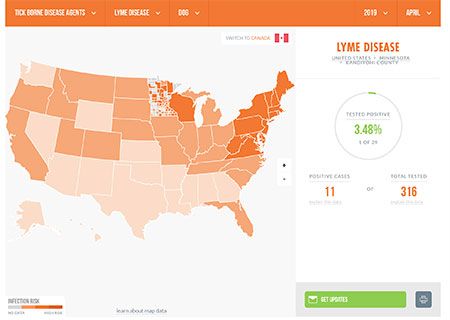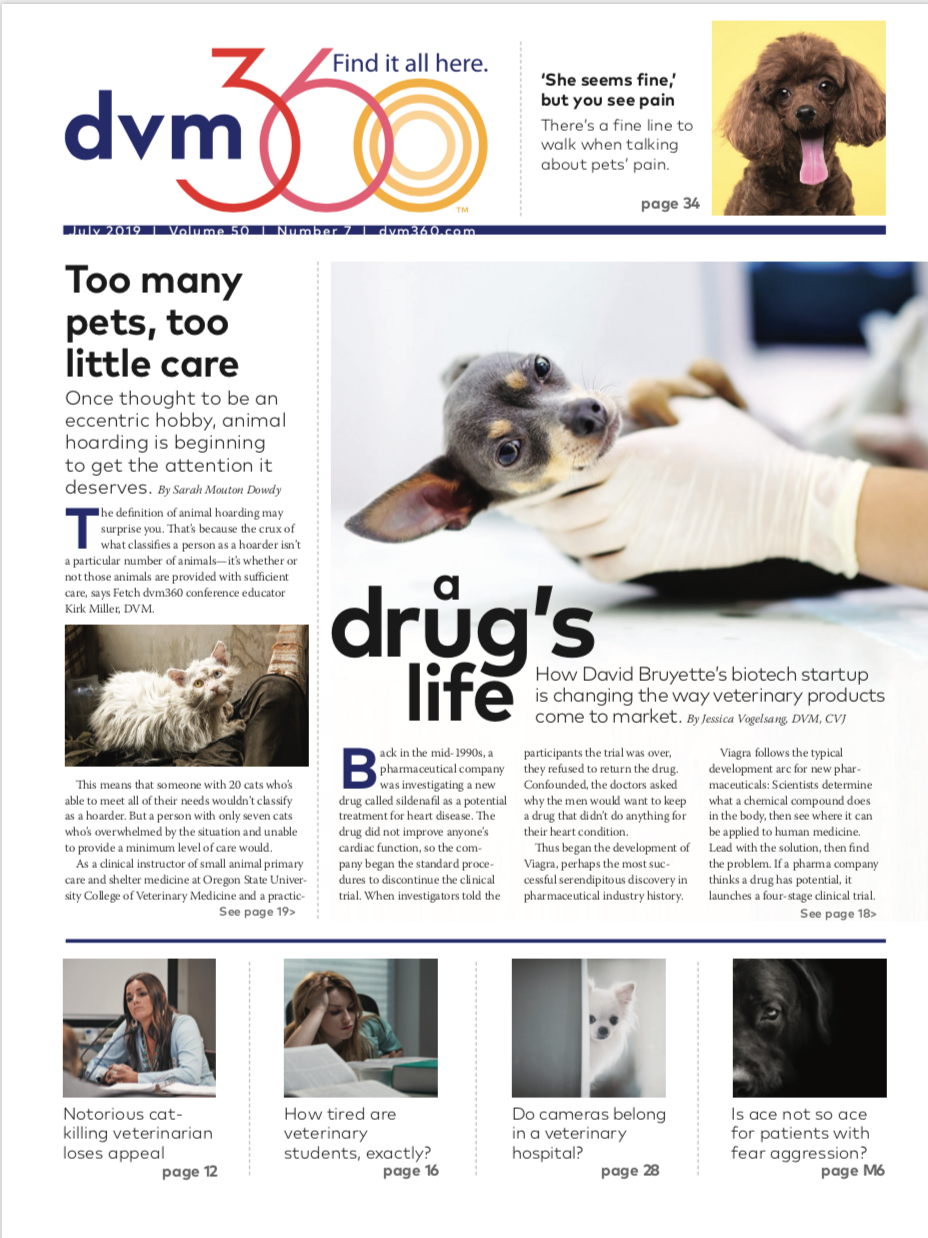CAPC study: Dogs can predict Lyme risk for humans
According to new research, regular veterinary testing of canine seroprevalence shows where people are at highest risk of tick-borne disease.
Map courtesy of CAPC.

Advocates of the One Health model focus on how veterinary medicine can positively impact other areas of health and vice versa. A new study from the Companion Animal Parasite Council (CAPC) gives credence to this idea. It found that regularly testing dogs for tick-borne illness can help predict where humans are at risk of Lyme disease.
The study quantifies the association between canine seroprevalence for Borrelia burgdorferi and human incidence of Lyme disease, according to a release from CAPC. As seroprevalence for B. burgdorferi in dogs increases, human incidence of Lyme disease also rises.
Using data from dogs is less expensive and logistically challenging than monitoring Lyme disease rates in people, the release states. Canine seroprevalence monitoring is active and data are reported monthly at the county, state and national levels. In contrast, human Lyme disease surveillance is conducted passively, and it's difficult to gather contemporary data, researchers say.
“Unlike human medicine, veterinarians are fortunate to have the advances and commonality of annual testing and vaccination for Lyme disease in dogs,” said Karen Fling, DVM, president of East Lake Veterinary Hospital in Dallas, Texas.
Human risk of exposure now extends beyond the traditional realm of the northeastern United States. States that include mostly high-incidence areas (10 cases or more per 100,000 humans) include Minnesota, Wisconsin and Virginia. Bordering states with some areas considered high-incidence include Michigan, Iowa, Illinois, West Virginia and North Carolina, according to the release.
Veterinarians, physicians and pet owners can access the monthly canine data on the CAPC website to assess risk for exposure.
